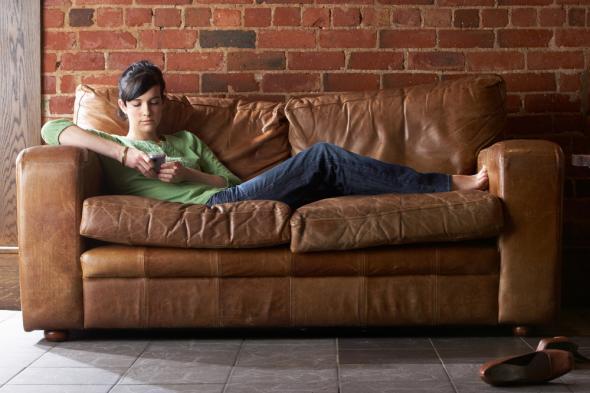If smart homes become ubiquitous over the next few decades, it will be in large part thanks to all the Americans who hate getting out of bed. Or at least, that’s what a survey from the home improvement chain Lowe’s suggests.
Lowe’s asked more than 2,000 Americans about their thoughts on the smart home, and while just over half said a smart home was somewhat important to them, 70 percent said that they wished they could control a feature of their home without getting out of bed. Whether it’s to adjust the thermostat, turn the lights on, start the coffee, or let the dog out using only a smartphone or tablet—all chores people told Lowe’s they’d like the smart home to do—it seems we all just want to push a button, without emerging from under the comforter (or the embarrassment of owning the Clapper).
Americans clearly wouldn’t mind letting technology do the busy work around the home—when asked by Lowe’s which element of the Jetsons’ futuristic home they’d most like to own, 36 percent said they’d like Rosie the Robot.
Although companies like Nest, which was recently acquired by Google, talk a lot about using the connected home to predict the everyday habits of their users, the Lowe’s survey suggests that these startups may need to do more work to convince the average consumer of the usefulness of their service. As Stacey Higginbotham noted on GigaOM, even the much-talked-up potential for increased energy efficiency was not a top priority—according to those surveyed, energy saving was the third benefit of owning a smart home, with 40 percent saying it would be a significant perk, after increased home security (50 percent) and the ability to monitor activity around their house when they were away (46 percent).
Alex Hawkinson, the founder of SmartThings (which was itself recently bought by Samsung), a digital platform that connects devices around the home, might be excited about a customer who used their system and “trained his speakers to play an angelic chorus as he approaches his majestically lit scotch collection,” as he told Time, but it seems people still hope the smart home will serve some pretty basic functions.
So, if Google/Nest, Apple’s Home Kit, Iris, and the rest can make a house a fortress that requires Americans only to lift a finger to tap a phone or tablet, complete with robot maid, then maybe the public can be convinced to buy into the smart-home dream.
